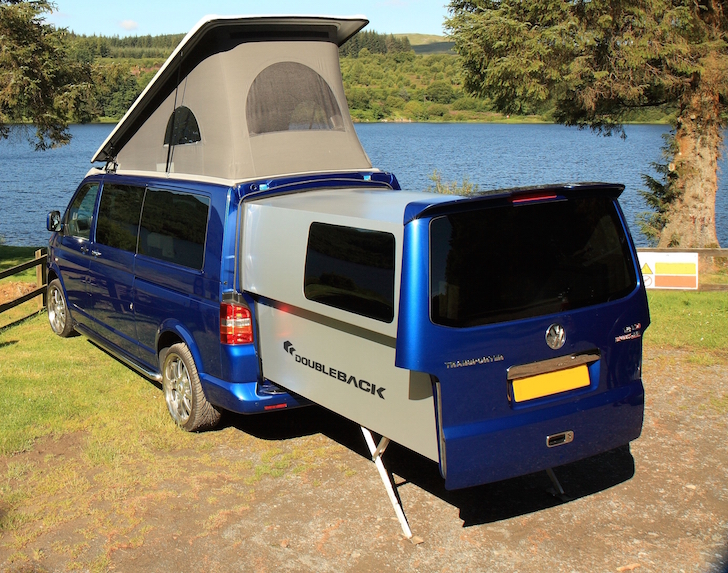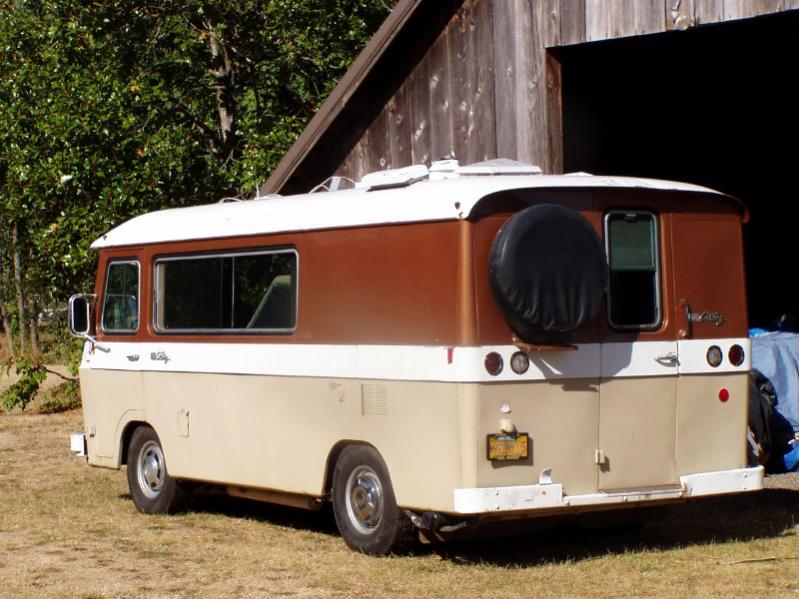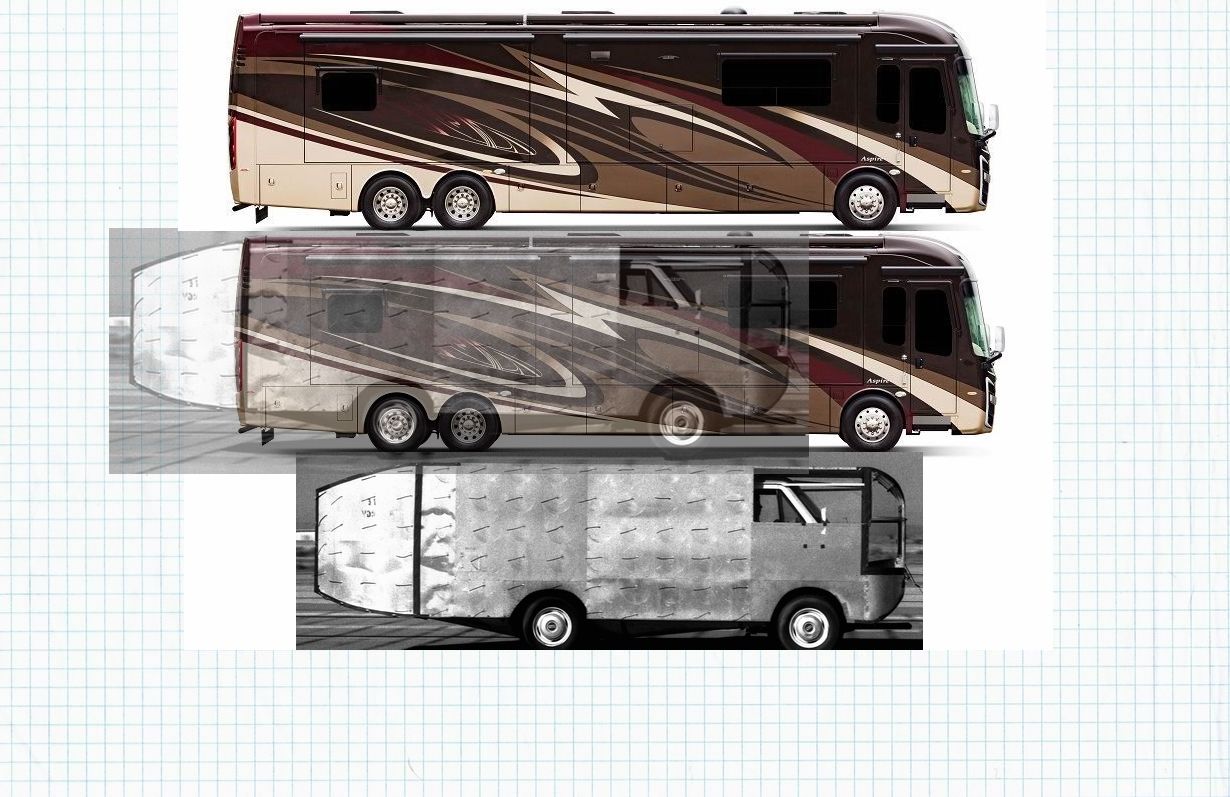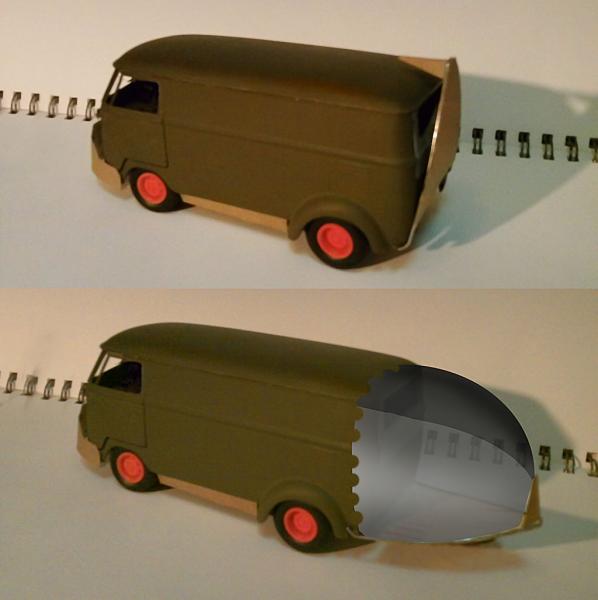 10-30-2016, 11:21 PM
10-30-2016, 11:21 PM
|
#221 (permalink)
|
|
Primer is still paint!
Join Date: Aug 2015
Location: box by the river
Posts: 621
Thanks: 140
Thanked 163 Times in 128 Posts
|
A couple un-aerodynamic pic's.


__________________

|
|
|

|
 Today Today
|
|
|
|
 Other popular topics in this forum...
Other popular topics in this forum...
|
|
|
|
 10-31-2016, 12:47 AM
10-31-2016, 12:47 AM
|
#222 (permalink)
|
|
Master EcoModder
Join Date: Aug 2012
Location: northwest of normal
Posts: 29,181
Thanks: 8,287
Thanked 9,045 Times in 7,476 Posts
|

It's too bad I've already sold my motor home; else it could have been your 'next brick shaped MPG project!  '.
|
|
|

|
 10-31-2016, 02:41 AM
10-31-2016, 02:41 AM
|
#223 (permalink)
|
|
(:
Join Date: Jan 2008
Location: up north
Posts: 12,762
Thanks: 1,585
Thanked 3,556 Times in 2,218 Posts
|
Actually that pop-up slide-out van camper is a very aero solution.
|
|
|

|
|
The Following User Says Thank You to Frank Lee For This Useful Post:
|
|
 12-13-2016, 05:59 AM
12-13-2016, 05:59 AM
|
#224 (permalink)
|
|
Primer is still paint!
Join Date: Aug 2015
Location: box by the river
Posts: 621
Thanks: 140
Thanked 163 Times in 128 Posts
|
Since this is the UnAerodynamic topic. I wanted to ask a question related to this. It has been said on here that on most brick shaped vehicles that the rear is where you can get the most aero-benefit for MPG. So I attached two images of a large random un-aero brick shaped RV. I know a full boat tail would provide the MOST mpg gain over what I am proposing. But what if a smaller pyramid shaped tail was installed as opposed to a full boat tail. Do you think that a MPG gain would be noticed on this large brick shaped vehicle?
If so, what kind of gain do you think it would provide?
I'm asking this "what-if" question as I'm considering a similar replacement for the van that I sold. Thanks
__________________

|
|
|

|
 12-13-2016, 08:02 AM
12-13-2016, 08:02 AM
|
#225 (permalink)
|
|
EcoModding Lurker
Join Date: Jul 2016
Location: Sweden
Posts: 98
Thanks: 25
Thanked 25 Times in 20 Posts
|
With regards to the rear aero dynamics for a goods vehicle within Europe, I think currently the drawbacks outweigh the benefits.
To have anything on the back it would have to be included within the length limit, so that would mean less load.
It would also have to be properly designed, built and would need to be approved before it could be sold / used. It would also be part of the vehicle's annual road worthyness inspection.
The other aspect is that it would be expensive, the standard manufacturers front aerodynamic kits are not cheap, I could also see it being unpratical for bay off loading, not to mention that it could be easily damaged, and expensive to put right.
Currently the European truck industry uses mainly the front aero mods. There are vehicles several who have side skirts, but it must only be about 40 %. Lift axels, LRR tyres and single tyres (instead of double) are cheap to implement and give good results.
There was (and presumably still is) a trailer company who were producing a trailer with a curved roof, but these had issues of being limited to certain roads due to bridge heights.
__________________

|
|
|

|
 12-13-2016, 08:31 AM
12-13-2016, 08:31 AM
|
#226 (permalink)
|
|
Master EcoModder
Join Date: Jul 2011
Location: Ann Arbor, Michigan
Posts: 4,201
Thanks: 136
Thanked 2,821 Times in 1,980 Posts
|
I slapped this composite image sheet together for you ChopStix.
http://s184.photobucket.com/user/kac...?sort=3&page=1

NASA photo borrowed from here: ( other trucks on page)
https://www.nasa.gov/centers/armstro...uck/index.html
PDF Paper:
https://www.nasa.gov/centers/dryden/...S-100-DFRC.pdf
I don't know off the top of my head the difference the truncated tail makes, Aerohead will know. However, I suggest you read the PDF a couple of times yourself. More information on the NASA website and the Internet - Google " NASA Dryden Truck".
__________________
George
Architect, Artist and Designer of Objects
2012 Infiniti G37X Coupe
1977 Porsche 911s Targa
1998 Chevy S-10 Pick-Up truck
1989 Scat II HP Hovercraft
You cannot sell aerodynamics in a can............
Last edited by kach22i; 12-13-2016 at 08:54 AM..
|
|
|

|
|
The Following User Says Thank You to kach22i For This Useful Post:
|
|
 12-13-2016, 08:49 AM
12-13-2016, 08:49 AM
|
#227 (permalink)
|
|
Master EcoModder
Join Date: Jul 2011
Location: Ann Arbor, Michigan
Posts: 4,201
Thanks: 136
Thanked 2,821 Times in 1,980 Posts
|
Can unaerodynamic cars be fast, and be of any use?
You betcha.
http://history.nasa.gov/SP-4220/ch2.htm

Quote:
|
Pontiac tow vehicle next to the M2-F1. Walter "Whitey" Whiteside purchased the Pontiac by special order and had it modified in a hot-rod shop near Long Beach for its special mission. (Private photo furnished by Bertha Ryan, NASA digital image ED96 43663-1)
|
Quote:
...."Whitey" Whiteside, a retired Air Force maintenance officer who was also a veteran dirt-bike rider and expert hot-rodder.3 Whitey volunteered to help us out by finding, purchasing, modifying, testing, maintaining, and driving the high-powered ground-tow vehicle that we needed.
At the time, the Pontiac Bonneville seemed the best choice, this model so named because it had been the big winner the year before in Utah at the Bonneville Salt Flats time trials. With Boyden "Bud" Bearse's help in the procurement department, Whitey was able to make a special order from the factory for a Pontiac Bonneville ragtop convertible with the largest engine then available, a four-barrel carburetor, and four-speed stick shift. NASA engineers at the Flight Research Center equipped the Pontiac with its tow rig and airspeed measuring equipment.
Whitey took the car for modification to Bill Straup's renowned hot-rod shop near Long Beach, where the straight-piped Pontiac was modified to run a consistent 140 miles per hour. There, auto-shop technicians also applied their hot-rod wizardry to the Pontiac, producing maximum torque at 100 miles per hour as measured on by a [35] dynamometer. They added a special gearbox, with transmission gear ratios significantly different from those that had helped the Bonneville win at the Salt Flats, enabling the Pontiac eventually (once drag slicks were installed) to tow the 1,000-pound M2-F1 to 110 miles per hour in 30 seconds. The Pontiac's souped-up engine got about four miles to the gallon. Whitey got full support from the NASA fabrication shops headed by Ralph Sparks (Sparky). Sparky and his right-hand man, Emmet Hamilton, took responsibility for keeping the Pontiac running and making any modifications required by Whitey.
|
More of the story in the link.
http://history.nasa.gov/SP-4220/ch2.htm
Sounds like one scary ride, I took my convertible/Targa to 140 once, just once - it was a bit terrifying.
__________________
George
Architect, Artist and Designer of Objects
2012 Infiniti G37X Coupe
1977 Porsche 911s Targa
1998 Chevy S-10 Pick-Up truck
1989 Scat II HP Hovercraft
You cannot sell aerodynamics in a can............
Last edited by kach22i; 12-14-2016 at 10:36 AM..
|
|
|

|
 12-13-2016, 02:53 PM
12-13-2016, 02:53 PM
|
#228 (permalink)
|
|
Master EcoModder
Join Date: Aug 2012
Location: northwest of normal
Posts: 29,181
Thanks: 8,287
Thanked 9,045 Times in 7,476 Posts
|
ChopStix — To answer directly, too small to be of any utility. Big rig trucks don't have aero add-ons on the rear because the load and unload through there. A pusher bus is the opposite case.

For your bus you could have upper and lower hinged panels. |
|
|

|
 12-14-2016, 07:08 AM
12-14-2016, 07:08 AM
|
#229 (permalink)
|
|
Master EcoModder
Join Date: Jun 2013
Location: Texas
Posts: 452
Thanks: 1,859
Thanked 128 Times in 107 Posts
|
|
|
|

|
 12-14-2016, 10:14 AM
12-14-2016, 10:14 AM
|
#230 (permalink)
|
|
Permanent Lurker
Join Date: May 2011
Location: Czechoslovakia (sort of), Europe
Posts: 348
Dáčenka - '10 Dacia / Renault Logan MCV 1.5 dCi (X90 k9k) 90 day: 47.08 mpg (US)
Thanks: 129
Thanked 198 Times in 92 Posts
|
Take a look at this: Semi Truck TrailerTail® Fuedeliveryings Technology | STEMCO
evenould also say "try airtabs" to general sneering..... ;-) but the bus seems to be right size.
Btw, isn't it a quite a leap, from van to this? One needs to think differently, drive differently.
(question is: by heart, are you bus driver, or van driver? in my country vans are used for fast delivery and their drivers behave accordingly - even off-duty.)
Last edited by seifrob; 12-14-2016 at 10:57 AM..
|
|
|

|
|